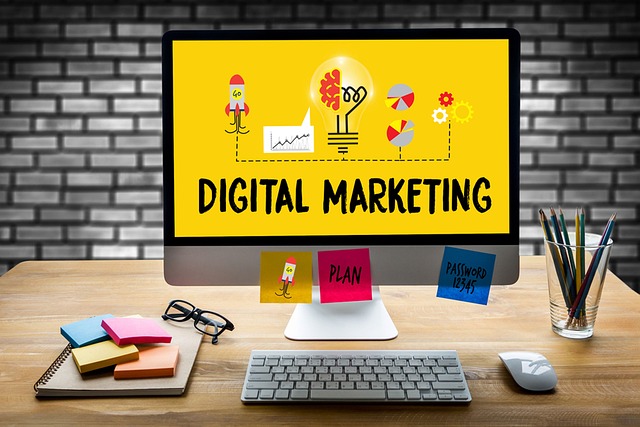Introduction:
In the fast-paced world of online business and commerce, two powerful strategies have emerged as integral components of the modern marketing landscape: Digital Marketing and Affiliate Marketing. These dynamic approaches represent the convergence of technology, connectivity, and entrepreneurial spirit, reshaping the way businesses promote products and individuals generate income. As we embark on this journey through the realms of digital and affiliate marketing, we’ll explore the fundamentals, strategies, and transformative potential that these methodologies offer in our interconnected and digitized global economy. Whether you’re a business seeking to enhance your online presence or an individual eager to unlock new streams of income, understanding the synergy between digital and affiliate marketing is key to navigating the digital frontier successfully.
I. The Evolution of Digital Marketing:
To truly understand the significance of digital marketing, one must trace its evolution. Digital marketing encompasses a broad spectrum of online channels and platforms, ranging from websites and social media to email campaigns and search engine optimization (SEO). The journey began with the rise of the internet, and as technology advanced, so did the strategies employed by marketers to leverage its potential.
II. Core Components of Digital Marketing:
Website Optimization:
A strong and easily navigable website serves as the cornerstone of every digital marketing strategy. Optimizing for both search engines and user experience ensures that businesses make a strong online impression.
Search Engine Optimization (SEO):
Enhancing a website’s search engine exposure is the art and science of search engine optimization. It involves keyword research, on-page optimization, and building quality backlinks to enhance a site’s ranking.
Content Marketing:
Content is king in the digital realm. Crafting valuable, relevant, and consistent content not only attracts but also retains a target audience. Blog posts, articles, videos, and infographics are among the various content types used.
Social Media Marketing:
Platforms like Facebook, Instagram, Twitter, and LinkedIn provide a direct line of communication with the audience. Social media marketing involves creating engaging content, running targeted ads, and building a community around a brand.
Email Marketing:
Despite the emergence of new channels, email marketing remains a powerful tool for direct communication. Personalized and targeted email campaigns can drive engagement and conversions.
Pay-Per-Click (PPC) Advertising:
PPC advertising, often seen on search engines and social media platforms, allows businesses to bid for ad placement in a search engine’s sponsored links. Every time an ad is clicked, advertisers are charged a fee.
III. Harnessing the Power of Analytics:
Digital marketing is not just about implementing strategies; it’s about measuring and analyzing their impact. Analytics tools such as Google Analytics provide valuable insights into user behavior, traffic sources, and conversion rates. This data-driven approach enables marketers to refine their strategies, allocate resources effectively, and make informed decisions.
IV. Trends Shaping the Digital Marketing Landscape:
Artificial Intelligence (AI) and Machine Learning:
AI and machine learning algorithms are transforming digital marketing by automating tasks, personalizing user experiences, and optimizing ad targeting.
Video Marketing:
The rise of video content is undeniable. Platforms like YouTube, TikTok, and Instagram Stories have made video marketing an essential component of digital strategies.
Voice Search Optimization:
With the increasing popularity of voice-activated devices, optimizing content for voice search is crucial for maintaining visibility in search engine results.
Interactive Content:
Interactive content, such as quizzes, polls, and surveys, engages users on a deeper level, fostering a more memorable and interactive experience.
Influencer Marketing:
Leveraging influencers to promote products or services has become a prominent trend. Influencer marketing adds authenticity and widens the reach of a brand through trusted voices.
V. Digital Marketing for Small Businesses:
Digital marketing isn’t exclusive to large enterprises. Small businesses can benefit immensely by leveraging cost-effective strategies. Local SEO, targeted social media campaigns, and creating compelling content tailored to a specific audience are key for small businesses to thrive in the digital landscape.
VI. The Future of Digital Marketing:
As technology continues to advance, the future of digital marketing holds exciting possibilities. Augmented reality, chatbots, and further integration of AI are anticipated to play pivotal roles. Staying ahead of the curve and adapting to emerging trends will be essential for marketers looking to maintain a competitive edge.
In conclusion
Digital marketing and affiliate marketing represent dynamic pillars of the modern business landscape. Digital marketing, with its multifaceted strategies and data-driven approaches, is essential for establishing a robust online presence. Simultaneously, affiliate marketing offers a lucrative avenue for individuals and businesses to collaborate, leveraging performance-based models for mutual benefit. As we navigate the interconnected realms of the digital era, embracing these marketing strategies collectively ensures a comprehensive and impactful approach to reaching audiences, driving sales, and fostering lasting success in the ever-evolving world of commerce.
